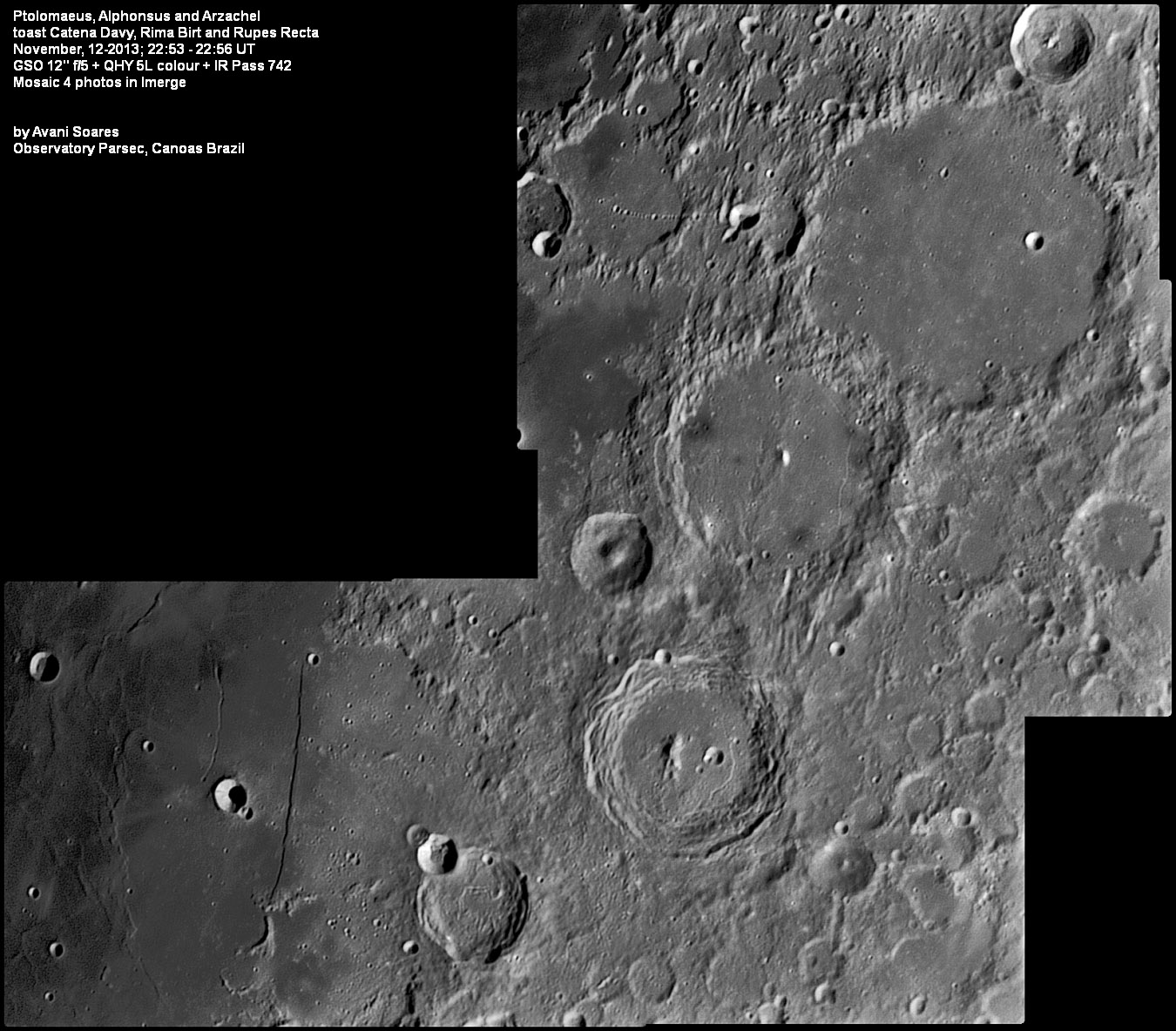Difference between revisions of "November 28, 2013"
| Line 20: | Line 20: | ||
<em>[http://lpod.wikispaces.com/21st+Century+Atlas+of+the+Moon 21st Century Atlas]</em> charts 16 & 17.<br /> | <em>[http://lpod.wikispaces.com/21st+Century+Atlas+of+the+Moon 21st Century Atlas]</em> charts 16 & 17.<br /> | ||
<br /> | <br /> | ||
| + | <p><b>Yesterday's LPOD:</b> [[November 27, 2013|A Giant Footprint]] </p> | ||
| + | <p><b>Tomorrow's LPOD:</b> [[November 29, 2013|New Crater Formed?]] </p> | ||
<hr /> | <hr /> | ||
Revision as of 13:01, 7 February 2015
Pre or Post?

image by Avani Soares, Brazil
Looking at Parrot C, the central peak crater with featureless walls to the bottom right of Arzachel, I thought that that crater formed after the impact that created the Imbrium Basin,
because C's rim cuts off one of the major linear features, part of the Imbrium sculpture, made during the basin formation. And then I thought what about the other nearby craters,
were they made before or after the Imbrium impact? Most of the craters right around C are shallow and have rounded rims; they have apparently been filled with Imbrium ejecta, and
are definitely pre-Imbrium. And Arzachel, with its sharp rim crests and well-developed, rather than smoothed, terraces is post-Imbrium. Same for Thebit and Thebit A. Birt is
obviously post-Imbrium since it formed on maria, virtually all of which erupted after the basins formed. At the top of the frame, the multiple sculpture that cuts the walls of large
Ptolemaeus shows that that crater existed before the basin formed. The rim of Alphonsus overlaps Ptolemaeus so Al is younger than Ptoly, but still it was formed before Imbrium
because its rim is cut by sculpture and it has the low ridge of Imbrium ejecta right down its middle. The rim of Alpetragius isn't cut and looks relatively sharp, so that crater is younger
than the basin, as is Herschel at the very top because its ejecta lies on the Imbrium-ejecta filled floor of Ptolemaeus. At any place on the Moon you can look carefully and determine
which craters are pre or post the nearest big basin. Just remember that some basins like Serenitatis are so old that nearly everything near them is post.
Chuck Wood
Related Links
21st Century Atlas charts 16 & 17.
Yesterday's LPOD: A Giant Footprint
Tomorrow's LPOD: New Crater Formed?



